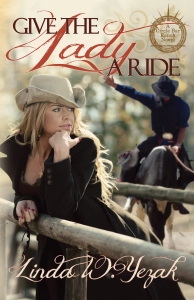 Writers have rules. They may not be carved in stone; they can be bent, broken, circumvented, but they’re still general guidelines that we’re supposed to follow. Generally.
Writers have rules. They may not be carved in stone; they can be bent, broken, circumvented, but they’re still general guidelines that we’re supposed to follow. Generally.
For the most part, readers don’t know this. They know what genre they like to read, and who writes in that genre the best, in their opinion. Some readers are savvy, more discriminating in their tastes, but for the most part, readers are forgiving, as is evident by the popularity of some of my favorite authors.
For instance, James Patterson is addicted to exclamation points. Drives me nuts, but his story lines always drive me forward. He knows how to weave a tale. So did the late Tom Clancy, king of the head-hoppers. Sometimes he’d hop from one head to another in the same paragraph. But his stories are so intricate, so involved, I kept hopping right along with him. What about the master, Cormac McCarthy? In his The Road, he didn’t name his characters, wrote run-on sentences, and dispensed with quotation marks. But his is the one book I return to as an example of masterful writing. Hated the story–I’m not a fan of apocalyptic literature–and I haven’t read another McCarthy novel, but I still use that one novel in many of the lectures I present.
These writers get away with it because they paid their dues. If they were nobodies, they’d have a harder time of it. But they write great, entertaining stories. No telling how many manuscripts they burned before they finally found one that the publishers wanted or how long it took before they finally started seeing decent returns on investment. But the point is that, regardless of their funky styles, they have built up a following of readers who trust them to entertain, thrill, present thought-provoking works. Developing that kind of readership takes time.
MSB has been going with me to several of my events lately, and one question he often asks whenever the opportunity arises is, “What’s more important–the story or how it’s written?”
Almost always, “story” is the top answer. That makes sense. We all love a good story. A good story poorly written can still be riveting. But the opposite isn’t necessarily true: well-written drivel is still drivel.
In my opinion, yes, story gets top billing, but that doesn’t rid us as writers of the responsibility to continue to learn the craft and strive to improve our work. Many of us, myself included, have yet to establish ourselves. We’re still building up our readership. While we’re doing that, we need to keep putting out a great product. Each book should be better than the last in some way. We should always be evaluating our own weaknesses, studying how to fix them, learning from other authors, experimenting, practicing, writing, writing, writing.
This is our job. It’s what we’ve chosen or been called to do. We sweat over each scene in order to entertain and enlighten the fickle masses and keep more readers in our camp. It’s not always fun. More often than not, it’s hard. But nothing worthwhile is easy.
It’s a new week, folks. Get to it. Happy writing.


















John Grisham is the king of head hopping. I love his legal thrillers and, although head hopping is a bugaboo of mine, the story soon takes over and I don’t notice it like I do in the first chapter or two. From what I understand, Christian Fiction authors hear way more about the rules than those in the mainstream market. Christian authors tell me when they are with writers who write for the general market and they mention the “rules,” they usually get blank stares.
Like you said, we have to know the rules first, then know how and when it’s okay to break them.
LikeLike
I’ve heard a lot of differences between us and the mainstream industry. Recently someone told me that her mainstream agent didn’t require her to jump near as many hoops as our agents. I found that intriguing. When I’m ready to go that route again, I may see if I can find a mainstream agent who’s familiar and known in the Christian industry. I wonder what the chances are.
LikeLike
Great post this soggy Monday morning! I love my story–now if I can just write it as it should be written.
LikeLike
Problem faced by every author on the planet. 😉
LikeLike
My favorite author head hopped so well I never noticed, never got lost. Guess you have to get that good to get away with all of it. We worry so much about editing mistakes, I sometimes think we lose our story heart and the joy that speaks to the reader if we are not careful.
LikeLike
Oh, I hope that’s not true. Editing is supposed to enhance a story, not destroy it!
LikeLike
I agree with this so totally. Still, as a reader myself, I like to say I’m a “forgiving critic.” Like you, I’ll forgive a host of little flaws if the author does what’s most important: sweeps me off my feet and into my imagination.
But, of course, if he doesn’t sweep me off his feet, I’ll nitpick him to death. :p I think it’s because the former *emotionally* engages me. With the latter, my brain is front and center and, of course, it sees all the mistakes it would miss if it were taking a backseat to my feelings about the story and the characters.
LikeLike
Yes. I know what you mean. And I also think that’s why proof- and beta readers miss things. They become engaged with the story.
I rarely have time for pleasure reading anymore, so when I do pick up a book for fun, it had better catch me from the first page. My TBR list is too long to waste time on a poorly written novel.
LikeLike
Yes, work, work, work. 😉 But so worth it. As always, thanks for the encouragement and instruction.
LikeLike
It is worth it!
LikeLike